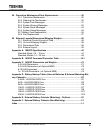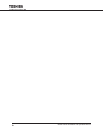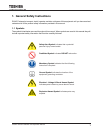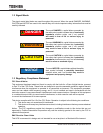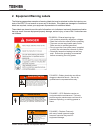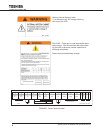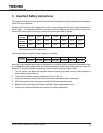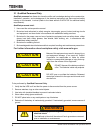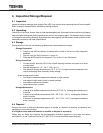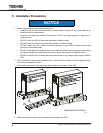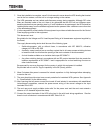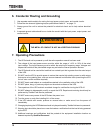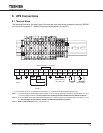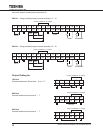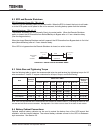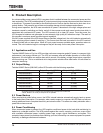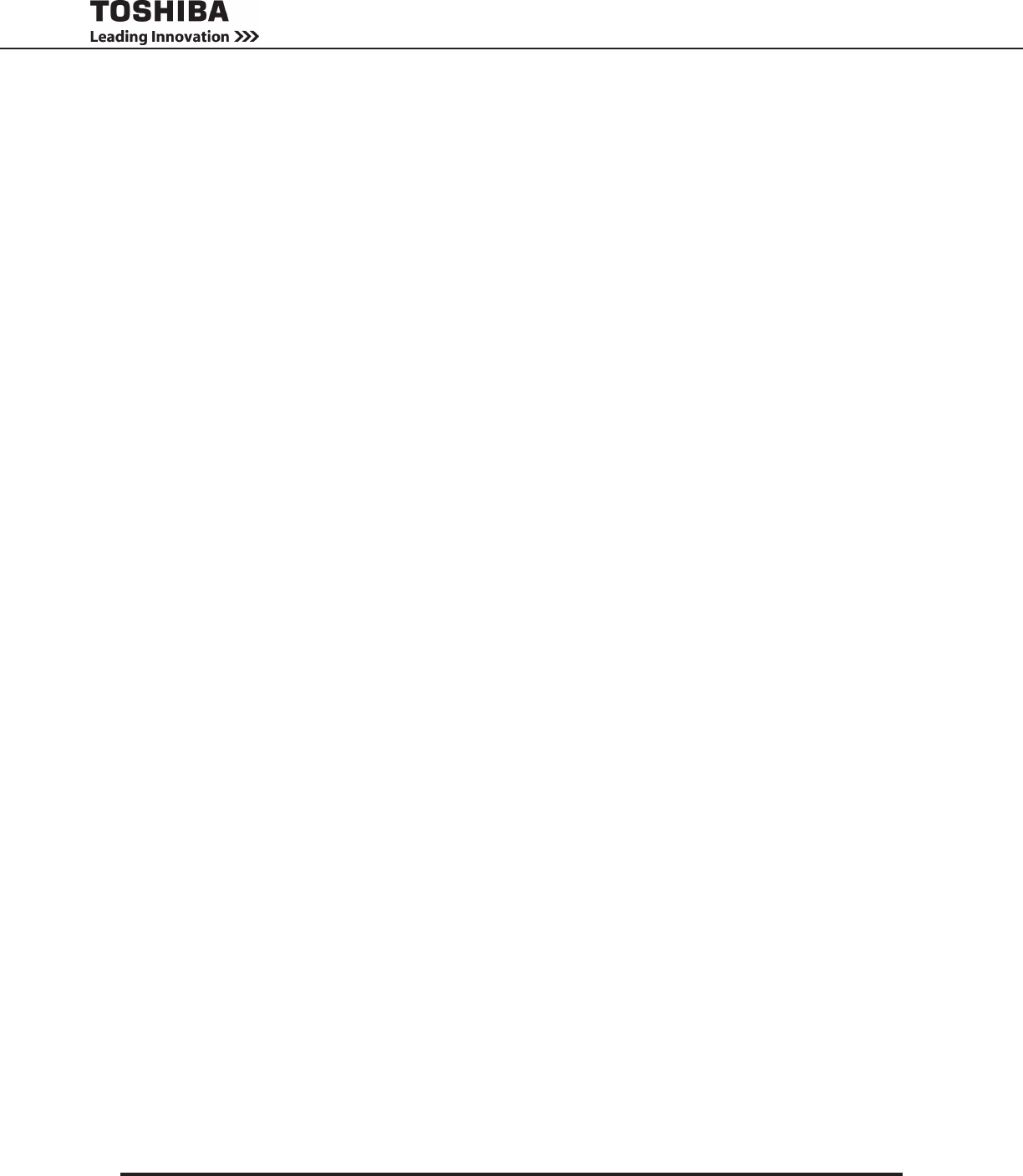
7
1600XP Series Installation and Operation Manual
4. Inspection/Storage/Disposal
4.1 Inspection
Inspect for shipping damage upon receipt of the UPS. Use caution when removing the unit from the pallet.
Refer to labels or documentation attached to packing material.
4.2 Unpacking
Check the unit for loose, broken, bent or otherwise damaged parts. If damage has occurred during shipping,
keep all original crating and packing materials for return to the shipping agent. The warranty does not apply
to damage incurred during shipping. Ensure that the rated capacity and the model number specied on the
nameplate conform to the order specications.
4.3 Storage
During periods of non-use, the following guidelines are recommended for storage.
Storage Preparation
1. Power up the UPS and allow it to operate with no load for 24 hours to fully charge the
batteries.
2. Stop the unit (see Stop Operation on page 16).
3. Place the MCCB switch (see Appendix C for location) in the Off position.
Storing Conditions
• For best results, store the UPS in the original shipping container and place on a wood
or metal pallet.
• Storage temperature: -4 – 104 °F (-20 – 40 °C).
• The optimum storage temperature is 70 °F (21 °C). A higher ambient temperature will
require recharging more frequently during storage.
Avoid storage locations that:
• Are subject to extreme temperature changes or high humidity.
• Are subject to high levels of dust or metal particles.
• Are subject to excessive vibration.
• Have inclined oor surfaces.
Storage Maintenance
• If stored at an ambient temperature less than 68 °F (20 °C), recharge the batteries every
9 months.
• If stored at an ambient temperature of 68 – 86 °F (20 – 30 °C), recharge the batteries
every 6 months.
• If stored at an ambient temperature of 86 – 104 °F (30 – 40 °C), recharge the batteries
every 3 months.
4.4 Disposal
Contact your local or state environmental agency for details on disposal of electrical components and
packaging in your particular area.
It is illegal to dump lead-acid batteries in landlls or dispose of improperly.
Please help our Earth by contacting the environmental protection agencies in your area, the battery
manufacturer, or call Toshiba toll-free at (877) 867-8773 for more information about recycling.



